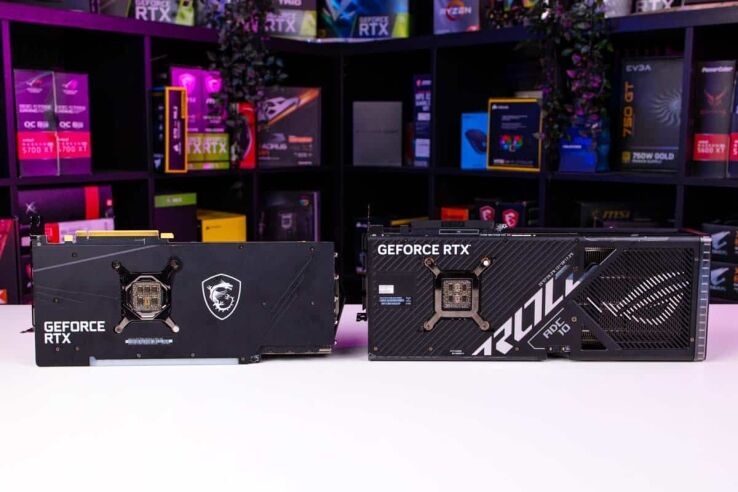Best GPU for Halo Infinite
Halo Infinite can require some serious power even with low system requirements

WePC is reader-supported. When you buy through links on our site, we may earn an affiliate commission. Prices subject to change. Learn more
As a first-party product, Halo Infinite marks yet another significant addition to the Xbox Series X/S catalog. Microsoft has also made the game available on PC. Naturally, we’re interested in how Halo Infinite performs when played with the finest graphics cards.
Using the extreme graphics preset in Halo Infinite can use up a lot of video memory. While you might be able to get by with 6GB at 1080p Ultra, you’ll have a better experience if you lower the game’s settings until it indicates that it’s not using much more than 6GB. Let’s start with the comparison tests of the AMD and Nvidia GPUs for now.
Gigabyte AORUS GeForce RTX 2070 Xtreme
Fantastic performance for the price
Extremely efficient cooling setup
RGB lighting
Very large in size
Shop on Amazon
CHECK PRICEA Radeon RX 570 or GeForce GTX 1050 Ti graphics card and a Ryzen 5 1600 or Core i5-4440 or higher CPU are the minimum specifications for Halo Infinite. That will probably only give you a 1080p low at 30 frames per second or more with that.
Radeon RX 5700 XT or GeForce RTX 2070, along with a Ryzen 7 3700X or Core i7-9700K, are listed as recommended system requirements for 1080p high at 60 frames per second. You might be able to get by with a little bit less hardware, but a GPU with at least 3GB VRAM—ideally, 4GB—is something you’ll absolutely need.
The game is available on the Xbox One and the updated Xbox One S/X. It features dynamic resolution scaling that ranges from 720p to the full 1080p, and it targets 30 frames per second on those consoles.
ASUS ROG Strix NVIDIA GeForce RTX 3060 OC Edition
Premium new-age design
Very efficient cooling
Axial-tech fan design
Excellent build quality
On the expensive side
GIGABYTE GeForce RTX 2070 Super 8GB
Solid performance
High quality build
Ray tracing
Cool and quiet
Few RTX-enabled games to enjoy
The CPU on most PCs will be faster than the Xbox One’s, but the GPU may be a different story. The Xbox Series X hardware was obviously intended to be used with Halo Infinite, so having a PC with comparable capabilities will be quite helpful.
With the exception of those who have a GPU with 12GB or more memory, the majority of users will likely choose to continue with the medium-to-high graphics presets.
The RTX 3060, which has roughly the same performance as the RTX 2070, only got a little bit more than 60 frames per second at 1080p Ultra, so even then, don’t anticipate extremely high frame rates at ultra-settings. That’s okay because the game still looks fantastic visually, even at the medium preset.
Now if you’re looking for a much better experience any more powerful hardware will give you great performance. Either an RX 7900 XTX or RTX 4080.
ASUS TUF Radeon RX 7900 XTX OC
Great cooling solution that improves thermals and fan curves over reference
Improved power management from an experienced brand
High quality build and overclocked for top tier performance
A slightly more expensive option for its better performance and quality
MSI RTX 4080 SUPRIM X
Excellent cooling solution to keep temperatures down
Overclo cked option allows for top tier performance
A more premium choice of card that will cost more than the rest of the selection
FAQs
What GPU do you need for Halo infinte?
For its system requirements, Halo Infinite at a minimum requires an RX 570 or GTX 1050 Ti. A GPU with DirectX 12 support and 4GB of VRAM. Whilst the recommended increases to an RX 5700 XT or RTX 2070. Which is up to 8GB of VRAM as the game is relatively demanding it is good to have something stronger.